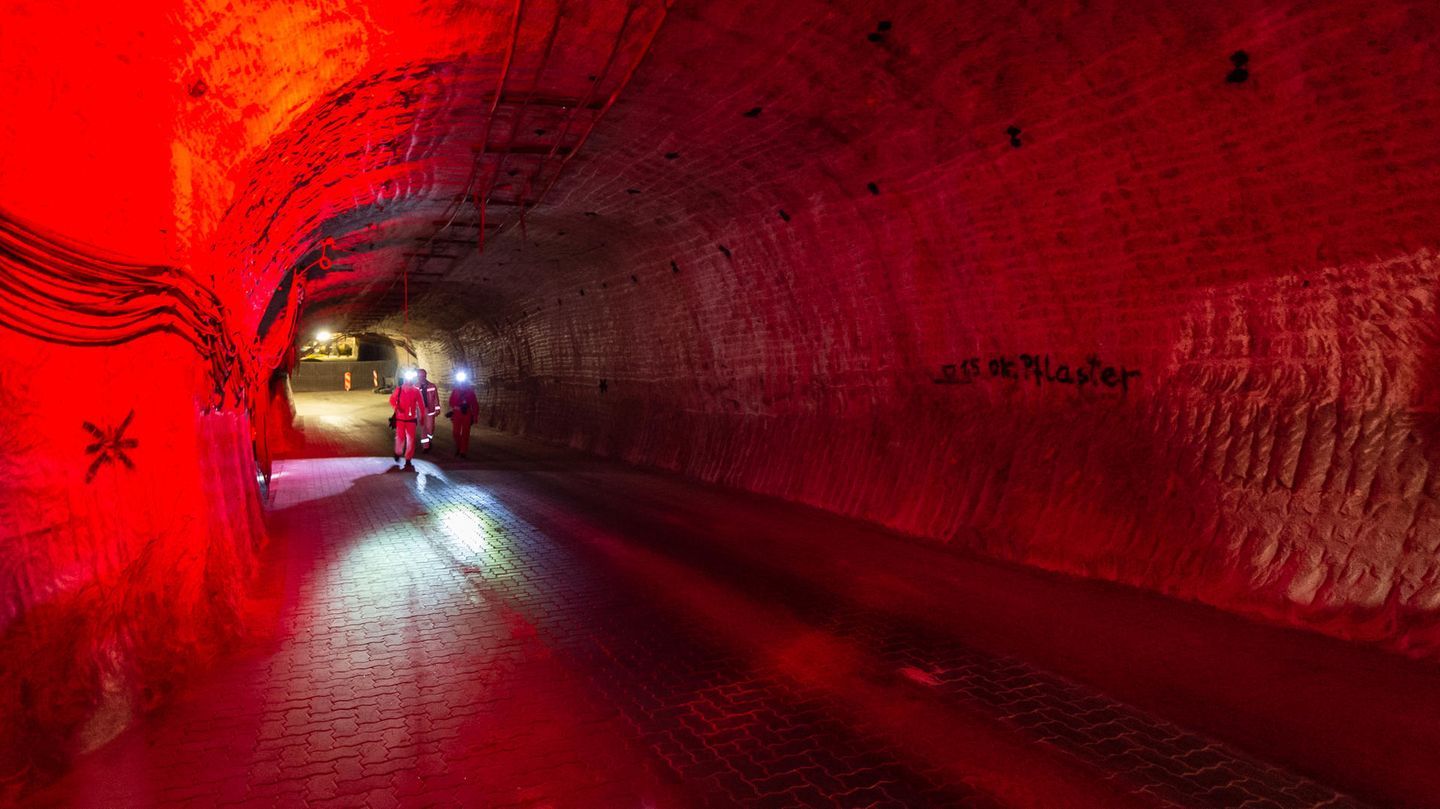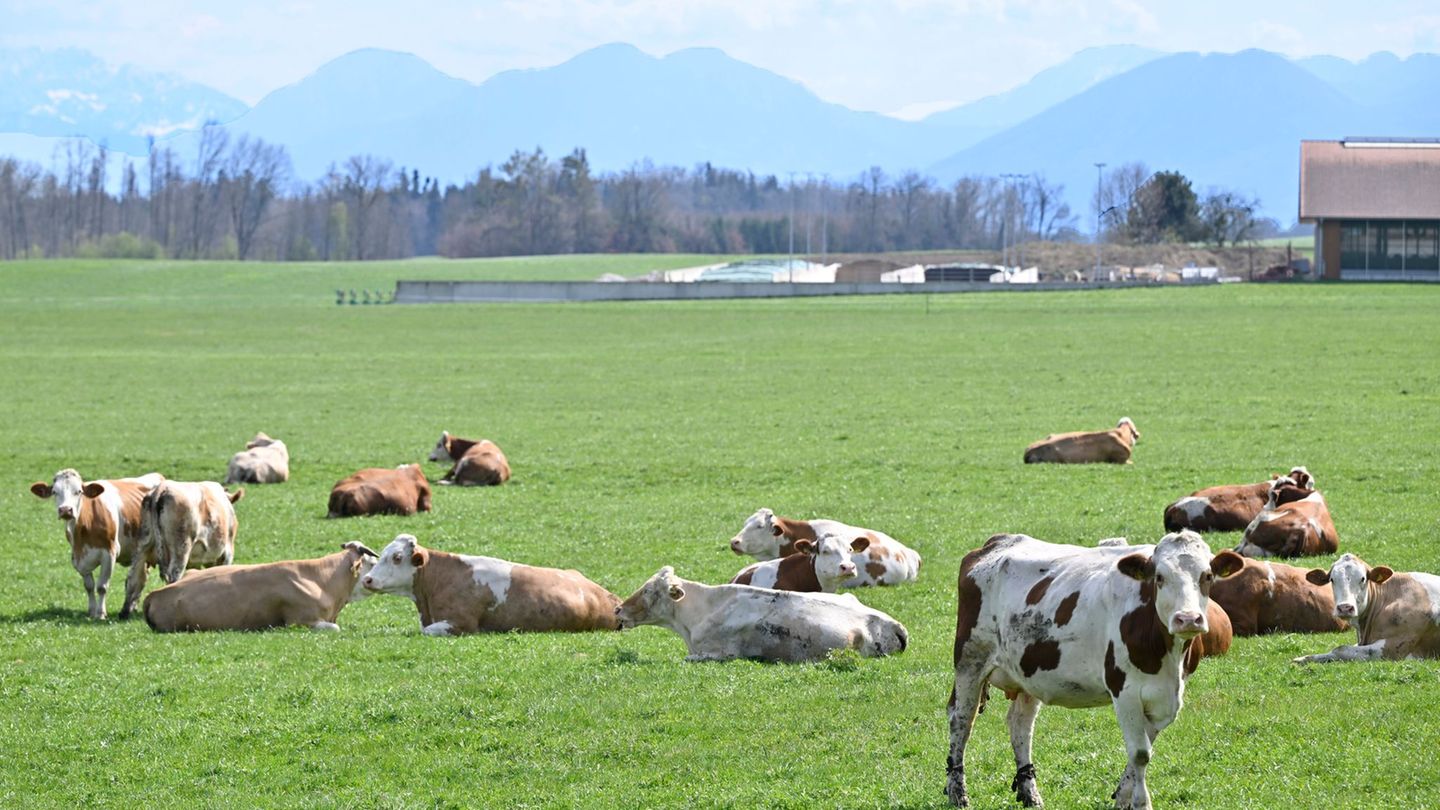The course was set a year ago, and now it is final: the Gorleben salt dome will not become a repository for high-level radioactive waste. But the interim storage facility remains.
The Gorleben exploration mine will be closed for good. The Federal Environment Ministry has placed a corresponding order with the Bundesgesellschaft für Finallagerung mbH (BGE). “The Gorleben repository chapter will be closed from today,” said Environment Secretary Jochen Flasbarth on Friday in Gorleben. Lower Saxony’s Environment Minister Olaf Lies (SPD) said: “As of today, there will be no more back doors.” The topic of the Gorleben repository is finally over.
In September 2020, the BGE announced that large parts of Germany are basically suitable for a nuclear repository according to geological criteria – but the long and fiercely contested Gorleben salt dome in Wendland is not among them. The reason given was geological defects. “All the facts are on the table. The decision has been made,” said Flasbarth.
Gorleben salt dome: dismantling within ten years
The chairman of the management board of the Federal Association for Final Storage, Stefan Studt, announced that the salt dome would be dismantled to its original state within ten years. To do this, the salt dump would have to be moved underground again. As soon as the cavities are filled, the shafts should be closed. It is not yet clear how high the costs will be. It currently costs 20 million euros a year to keep the salt dome open. To date, 1.9 billion euros have been invested in exploring Gorleben.
In the 1970s, politicians made the decision to set up a repository in the Gorleben salt dome, which led to protests that lasted for decades. State Secretary Flasbarth said that Gorleben had stood for a major social conflict for over three decades. “From this conflict, politics has learned for the search for a repository: In the end, it must be easy to understand why a location was chosen.” The President of the Federal Office for the Safety of Nuclear Waste Management, Wolfram König, said: “The task of solving the final disposal issue remains.”
Gorleben was “wrong political decision”
Lies emphasized that Gorleben was a “wrong political decision”. In future, purely scientific findings counted when looking for a location. Lower Saxony is also still an option for a repository.
Olaf Bandt, chairman of the environmental protection organization BUND, said: “The shutdown shows the strength of critical movements.” But it is also a reminder for the current search for a repository. “Participation and transparency are an indispensable part of this generational task,” emphasized Bandt.
Wendland needs new perspectives
The above-ground interim storage facility in Gorleben, in which over a hundred transport containers with highly radioactive waste are stored, does not affect the decision. Jochen Stay from the anti-nuclear organization broadcasted therefore called for a solution for this as well. “The storage of the Castor casks is only approved there until 2034. According to the plans of the federal government, storage in a future deep geological repository somewhere in Germany should begin in 2050 at the earliest,” emphasized Stay. So far, it is unclear what will happen to the Castor containers after 2034.
Lies said that after the end of a repository in Gorleben, new economic perspectives were necessary for the Wendland, which should be worked out together with the population. “This region has enormous potential not only through its natural landscapes and tourism, but also for the climate and energy transition,” emphasized the Lower Saxony Minister for the Environment.
David William is a talented author who has made a name for himself in the world of writing. He is a professional author who writes on a wide range of topics, from general interest to opinion news. David is currently working as a writer at 24 hours worlds where he brings his unique perspective and in-depth research to his articles, making them both informative and engaging.




